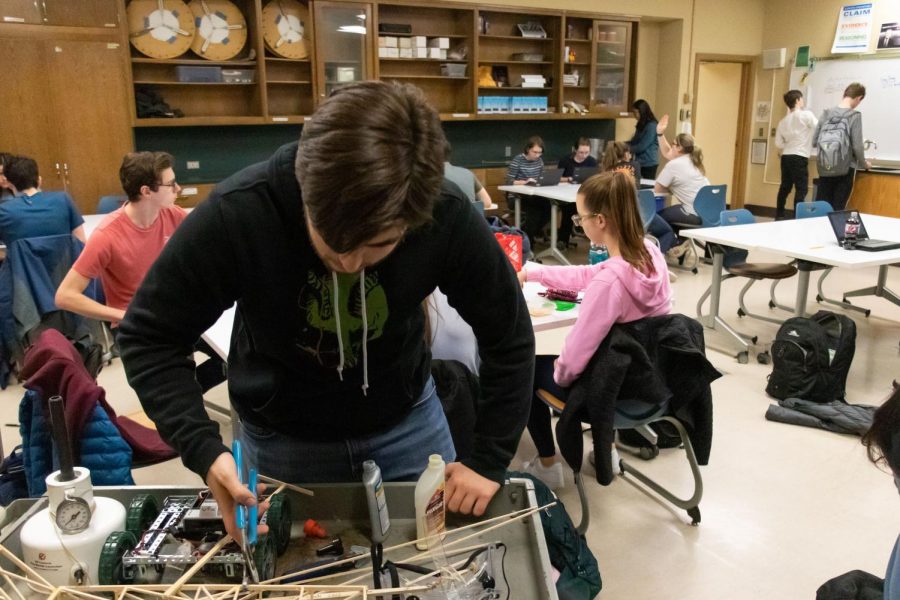Science Olympiad looks to turn heads at regionals
February 28, 2020
OPRF’s Science Olympiad has been “going off” as of late, taking home 10 medals in nine events in their January competition at Crystal Lake. They also earned 20 medals in 14 events at the Palatine Invitational in November.
In a standard Science Olympiad competition, 40-45 teams divide into multiple divisions, each including multiple fields of study.
At Crystal Lake, freshman Zekey Wells and junior Gia Fisher earned first place for their gravity vehicle. The team took fifth overall out of 15 teams in their division. At Palatine, the team did exceptionally well, winning first place in their division.
With these big wins, the relatively new organization is looking to develop a reputation throughout the school. “People generally don’t know we exist,” says junior Ellie Sigel, a member of both the Math Team and Science Olympiad. “It’s the same with every other academic team, basically.” Sigel joined Science Olympiad in middle school and found out about OPRF’s program through word of mouth and the school activity fairs.
With Science Olympiad, Sigel studies Ornithology, the study of birds. Sigel took home 4th place in her field at both Palatine and Crystal Lake.
Performing well in big competitions like these requires ample preparation. “I use a lot of resources from the Science Olympiad website (www.scioly.org),” said Sigel. The page is dedicated to everything Science Olympiad, from rules and regulations to archived test sets from each event.
“My job is usually to compile big note sheets (for use in the competition),” Sigel said.
Evidently, Science Olympiad, which has only existed for five years, has a bright future ahead. “All of these wins show us that we have the potential and the ability to make it to state this year,” said junior Science Olympiad captain Jack Tanner. OPRF’s Science Olympiad team has never qualified for state in the past.
Last year, Science Olympiad’s JV squad finished sixth and varsity seventh out of 16 teams in their regional competition. “We’ve definitely improved; everyone is very passionate about what they do,” Sigel said of the teams’ improvement over the years. “A lot of new people (join each year), so there’s a lot more competition to get a varsity spot.”
The Science Olympiad is hoping to qualify for state this year by performing in the top six at regionals, Tanner said. The regional competition is Saturday.

